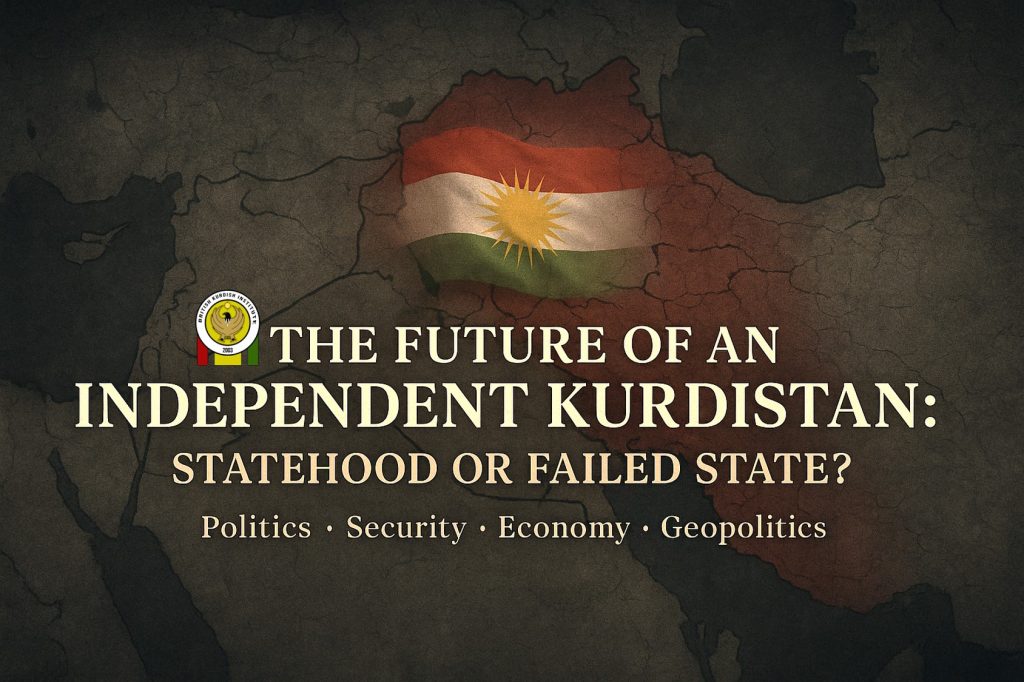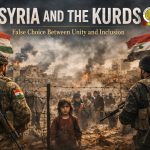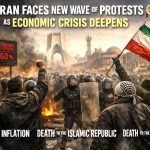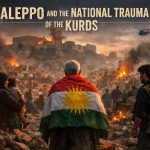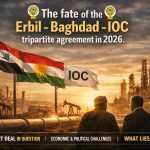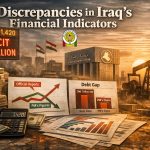The debate over independence remains one of the most heated issues in the Kurdistan Region of Iraq. Massoud Barzani, president of the Kurdistan Democratic Party (KDP), argues that the defeat of the Islamic State will reshape the map of Iraq and the Middle East, giving the Kurds an opportunity to declare their own state.
But beyond the rhetoric lies a critical question: if independence were declared, what kind of Kurdish state would emerge? Could it overcome its current political, economic, and security challenges—or would it risk becoming a failed state?
The Risk of a Failed State
Iraqi Kurdistan’s history and present-day conditions suggest that an independent Kurdish state may struggle to survive. A failed state is defined as one that lacks legitimacy, cannot provide essential services such as education and security, and fails to protect the welfare of its citizens.
When examining politics, security, economy, and geopolitics, the outlook for an independent Kurdistan appears dim.
Politics: From Democracy to Autocracy
The political system of a future Kurdistan would likely be a continuation of today’s regime—democratic in name but increasingly autocratic in practice. The KDP, as the victor of the 1990s civil war against the Patriotic Union of Kurdistan (PUK), sees itself as the rightful ruler of the region.
Massoud Barzani and his party accept democracy only when it aligns with their interests. In practice, opposition voices and democratic institutions are often suppressed. For example, on December 10, 2015, the KDP expelled the speaker of Parliament after lawmakers attempted to amend the presidential law to ensure fair elections.
Rather than building inclusive institutions, the KDP has focused on consolidating power, silencing critics, and maintaining dominance—raising fears that independence would lead to authoritarian rule.

Security: Divided and Weak Forces
Kurdish security forces are deeply divided. Since the founding of the Kurdistan Regional Government (KRG), the Peshmerga have been split between the KDP and PUK, with each party controlling its own forces. Political leaders also maintain private guards and militias, fueling distrust and division.
This lack of unity poses a serious threat to stability. In times of crisis, these rival forces could be turned against one another, as history has shown. Externally, an independent Kurdistan would face powerful neighbors—Turkey, Iran, Iraq, and Syria—whose military and economic capabilities far exceed its own.
Compounding the problem are geographic vulnerabilities and limited resources. Without stronger unity, funding, and training, the Peshmerga would be unable to defend a sovereign Kurdish state from external threats.
Economy: Dependent on Oil and Deeply Corrupt
Economically, Kurdistan faces severe structural challenges. Since Baghdad cut the KRG’s share of the federal budget in 2014, the region has been trapped in a crippling financial crisis. Kurdish officials admit that government debts have climbed to nearly $20 billion.
The dream of building a prosperous oil-based economy has faltered. Recent discoveries suggest oil reserves are smaller than previously claimed, and production remains limited. Global giants like ExxonMobil and Chevron have scaled back operations, citing both security and political instability.
Overdependence on oil, coupled with corruption and lack of economic diversification, has hollowed out the traditional economy. Markets are monopolized by elites tied to ruling parties, leaving ordinary citizens in poverty while a small minority grows richer. Stark inequalities between urban and rural areas further highlight the fragility of the system.
Geopolitics: Surrounded and Vulnerable
Geography presents another major obstacle. Kurdistan is landlocked, bordered by states that are largely opposed to Kurdish independence. Without access to open seas or secure trade routes, the region would remain dependent on its neighbors—likely Turkey or Iran—for survival.
Such dependence could easily translate into subordination, with powerful neighbors intervening militarily, politically, or economically. Far from becoming a stable state, Kurdistan could turn into a battleground for regional rivalries.
Conclusion: A Dream at Risk of Becoming a Nightmare
The idea of an independent Kurdistan stirs powerful emotions among Kurds. Yet the realities of politics, security, economy, and geopolitics paint a troubling picture. Instead of delivering prosperity and freedom, independence might lead to instability, corruption, authoritarianism, and foreign intervention.
Every Kurd dreams of a sovereign homeland. But independence alone does not guarantee success. The true challenge is building a state capable of serving its people, protecting its sovereignty, and fostering justice and equality. Without these foundations, independence may not be the dream many hope for—but a nightmare they wish to escape.

